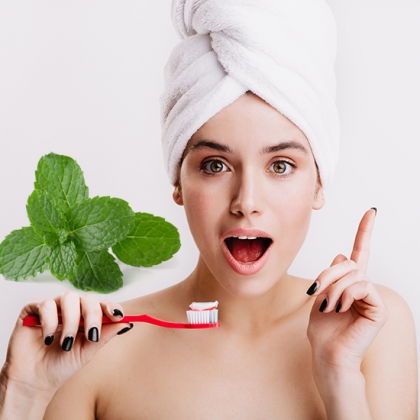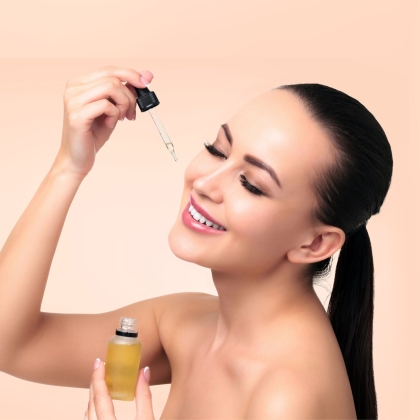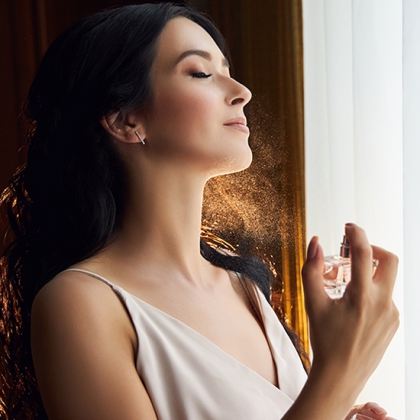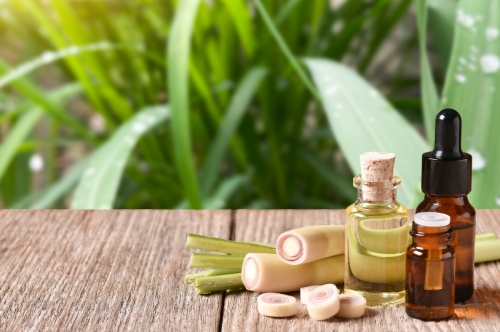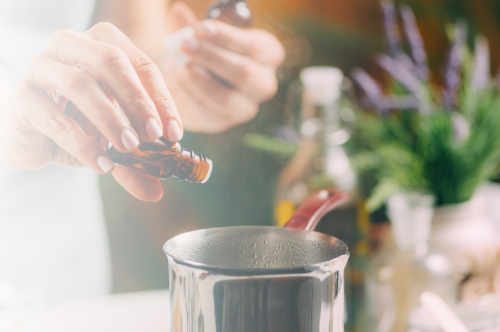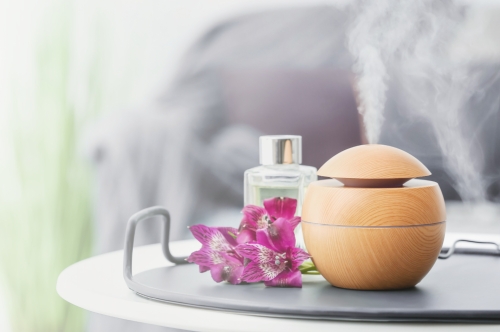Sweet Orange Oil For Skin And Hair | Benefits, Uses & More

Introduction about orange oil
Orange oil is an essential oil produced by cells within the rind of an orange fruit (Citrus sinensis fruit). In contrast to most essential oils, it is extracted as a by-product of orange juice production by centrifugation, producing a cold-pressed oil. It is composed of mostly (greater than 90%) d-limonene, and is often used in place of pure d-limonene. D-limonene can be extracted from the oil by distillation.
How is orange oil made?
Orange oil is made by extracting the essential oil from the peel of oranges. There are two main methods for extracting orange oil:
- Cold pressing: This method uses pressure to squeeze the oil from the peel. Cold pressing is the most common method for extracting orange oil, as it produces a high-quality oil with a strong flavor.
- Steam distillation: This method uses steam to vaporize the oil from the peel. The vapor is then condensed back into a liquid. Steam distillation is a more efficient method for extracting orange oil, but it can produce a lower-quality oil with a weaker flavor.
The quality of orange oil can vary depending on the method of extraction, the type of orange, and the growing conditions. Orange oil that is extracted using cold pressing is generally considered to be of higher quality than oil that is extracted using steam distillation.
Different types of orange oil
There are several types of orange oil available, each with its own unique characteristics and extraction methods. Here are some notable types of orange oil:
Sweet Orange Oil (Citrus sinensis)
This is the most common type of orange oil, derived from the peels of sweet oranges. It has a fresh, sweet, and tangy citrus aroma. Sweet orange oil is widely used in aromatherapy, perfumery, skincare products, and as a flavoring agent in food and beverages.
Bitter Orange Oil (Citrus aurantium)
Bitter orange oil is extracted from the peels of bitter oranges, also known as Seville oranges. It has a more intense and bitter aroma compared to sweet orange oil. Bitter orange oil is often used in perfumes, as a flavoring agent in liqueurs such as Cointreau and Triple Sec, and in traditional medicine.
Blood Orange Oil (Citrus sinensis var. Moro)
Blood orange oil is obtained from the peels of blood oranges, which have a distinctive reddish pulp. It has a rich, sweet, and tangy aroma with subtle floral notes. Blood orange oil is used in perfumes, skincare products, and flavorings.
Bergamot Oil (Citrus bergamia)
Bergamot oil is not technically an orange oil, but it is derived from the Citrus bergamia fruit, which is a hybrid of a bitter orange and a lemon or lime. It has a fresh, citrusy aroma with floral and spicy undertones. Bergamot oil is widely used in perfumery, aromatherapy, and as a flavoring in Earl Grey tea.
Mandarin Oil (Citrus reticulata)
Mandarin oil is extracted from the peels of mandarin oranges. It has a sweet, fruity, and slightly floral aroma. Mandarin oil is commonly used in perfumes, massage oils, and skincare products.
These are just a few examples of the different types of orange oil available. Each type has its own distinct fragrance profile and potential uses in various industries.
Right way to use orange oil
The right way to use orange oil depends on the specific purpose. Here are a few general guidelines:
Aromatherapy
Add a few drops of orange oil to a diffuser or humidifier to fill the room with a refreshing citrus scent. You can also inhale the oil directly from the bottle for a quick pick-me-up.
Cleaning
Orange oil can be used as a natural cleaner. Dilute it with water and use it as a surface cleaner for countertops, floors, or appliances. It can help remove grease and grime while leaving a fresh scent.
Personal Care
For topical use, dilute orange oil with a carrier oil such as coconut or almond oil before applying it to the skin. It can be used in massage oils, bath products, or as an ingredient in homemade skincare recipes.
Flavourings
Orange oil can add flavor to your culinary creations. Use a small amount in baked goods, salad dressings, marinades, or sauces. Remember that orange oil is highly concentrated, so start with a small quantity and adjust to taste.
Benefits of orange oil for skin
Orange oil offers several benefits for the skin:
Brightening and Radiance
Orange oil has natural brightening properties that can help improve the complexion and add a radiant glow to the skin.
Antioxidant Protection
It is rich in antioxidants, such as vitamin C, which can help protect the skin from free radicals and environmental damage, reducing signs of aging.
Anti-Inflammatory
Orange oil has anti-inflammatory properties that can soothe irritated skin and reduce redness and inflammation.
Skin Cleansing
It has cleansing properties that can help remove dirt, excess oil, and impurities from the skin, leaving it refreshed and clean.
Revitalizing
Orange oil can rejuvenate dull and tired-looking skin, making it appear more vibrant and revitalized.
Astringent
It has a mild astringent effect, which can help tighten the skin and reduce the appearance of enlarged pores.
Remember to dilute orange oil with a carrier oil before applying it to the skin, perform a patch test to check for any adverse reactions, and avoid direct sunlight after topical application, as citrus oils can increase sensitivity to sunlight.
Benefits of orange oil for hair
Orange oil offers several benefits for hair:
Scalp Health
Orange oil has antiseptic properties that can help maintain a healthy scalp by reducing microbial growth and preventing scalp issues like dandruff and itching.
Hair Growth
It stimulates blood circulation in the scalp, promoting hair growth and preventing hair loss.
Conditioner
Orange oil can help moisturize and condition the hair, making it softer, smoother, and more manageable.
Shine and Luster
It adds a natural shine and luster to the hair, enhancing its appearance and making it look healthier.
Fragrance
Orange oil has a pleasant citrus aroma that can leave your hair smelling fresh and invigorating.
To use orange oil for hair, you can add a few drops to your shampoo or conditioner, or dilute it with a carrier oil like coconut or jojoba oil and massage it into the scalp. It's important to perform a patch test before applying it to your hair to ensure that you don't have any adverse reactions.
Potential Side Effects of Orange Oil & who should avoid it
While orange oil is generally safe for most people when used properly, it's important to be aware of potential side effects and consider any personal sensitivities or allergies. Here are some points to keep in mind:
Skin Sensitivity
Orange oil is a concentrated essential oil, and some individuals may experience skin irritation or allergic reactions. It's advisable to perform a patch test on a small area of skin before using it topically and dilute it with a carrier oil to minimize the risk of irritation.
Photosensitivity
Like other citrus essential oils like lemon oil or lime oil, orange oil can increase the skin's sensitivity to sunlight. It's recommended to avoid direct sun exposure or tanning beds for at least 12 to 24 hours after applying orange oil topically.
Allergies
Individuals with known allergies to oranges or citrus fruits should avoid using orange oil to prevent allergic reactions.
Pregnancy and Children
Pregnant women and young children should exercise caution when using essential oils, including orange oil. It's advisable to consult with a healthcare professional before using it during pregnancy or on children.
Despite these precautions, many people enjoy the benefits of orange oil without experiencing any adverse effects. When used properly and in moderation, orange oil can provide a refreshing and aromatic experience while offering potential benefits for the skin, hair, and overall well-being. Another popular essential oil known for its various advantages is rosemary oil. Rosemary oil is commonly used in aromatherapy and has been associated with potential benefits for promoting hair growth, improving memory and concentration, and relieving stress.
Frequently Asked Questions
1.How can sweet orange essential oil be used in aromatherapy?
Sweet orange essential oil can be used in aromatherapy by diffusing it in a room to create a fresh and uplifting atmosphere. It can also be added to bathwater for a revitalizing and mood-enhancing experience. Additionally, it can be mixed with carrier oils for massage or used in homemade skincare products for its brightening properties.
2. Are there any skincare benefits associated with sweet orange essential oil?
Sweet orange essential oil offers several skincare benefits. It is known for its antiseptic and antibacterial properties, which can help with acne-prone skin. It also has brightening properties that can improve the appearance of dull skin. However, it should be used with caution and diluted properly before applying to the skin.
3. Can sweet orange essential oil be used for household cleaning purposes?
Yes, sweet orange essential oil is a popular choice for household cleaning due to its natural cleaning properties. It can be used in all-purpose cleaners, floor cleaners, and as an air freshener, leaving behind a refreshing citrus scent while helping to disinfect and clean various surfaces.

